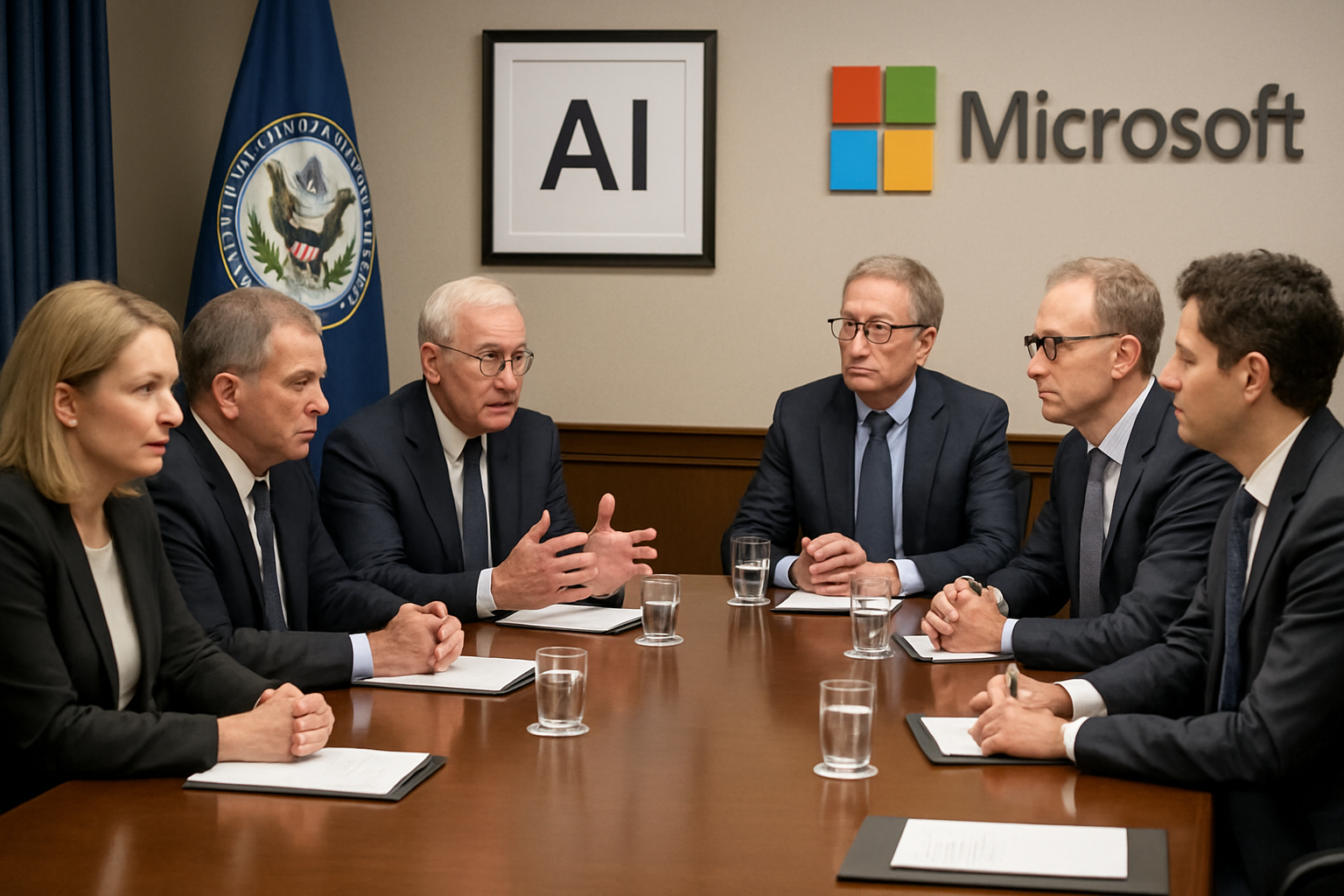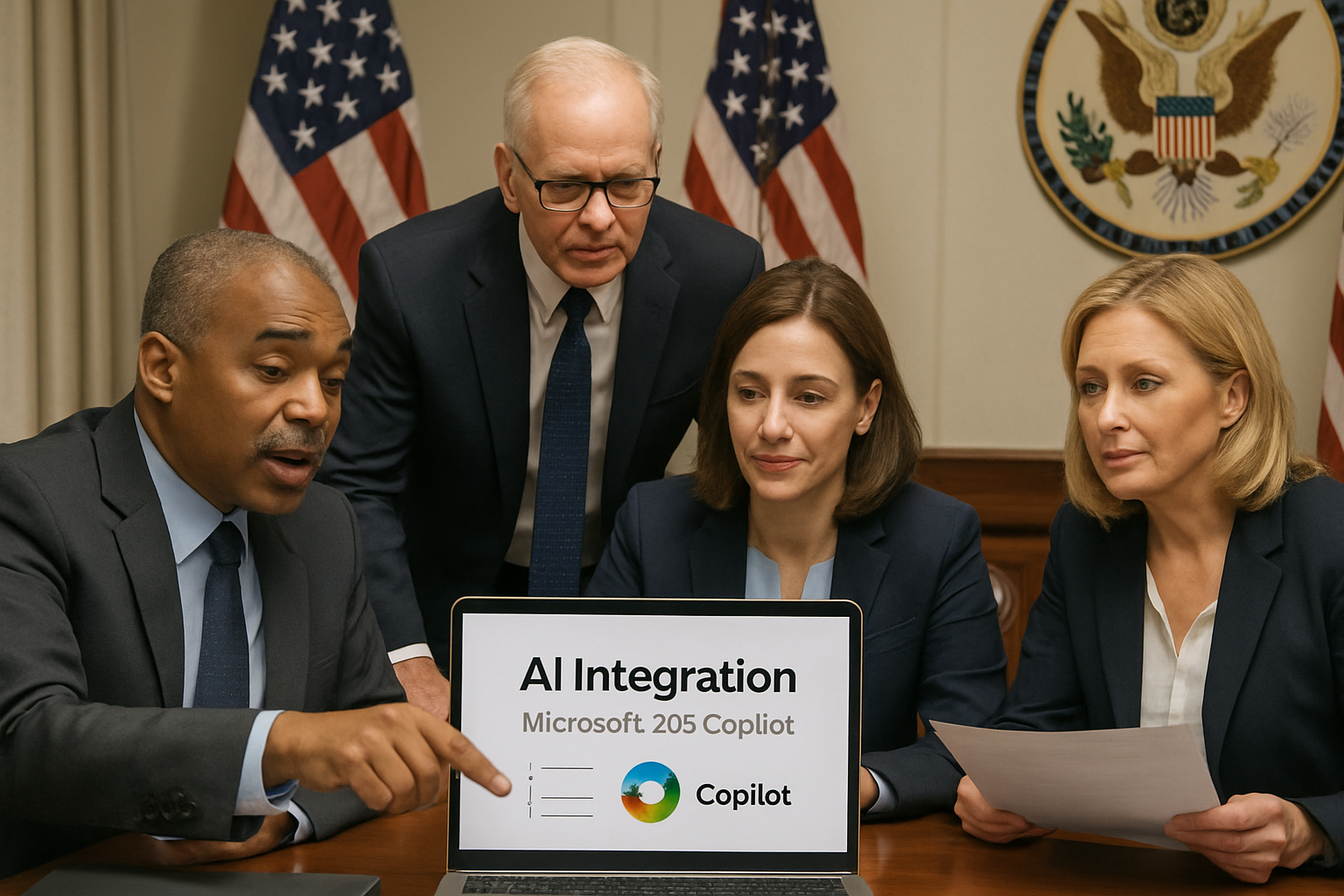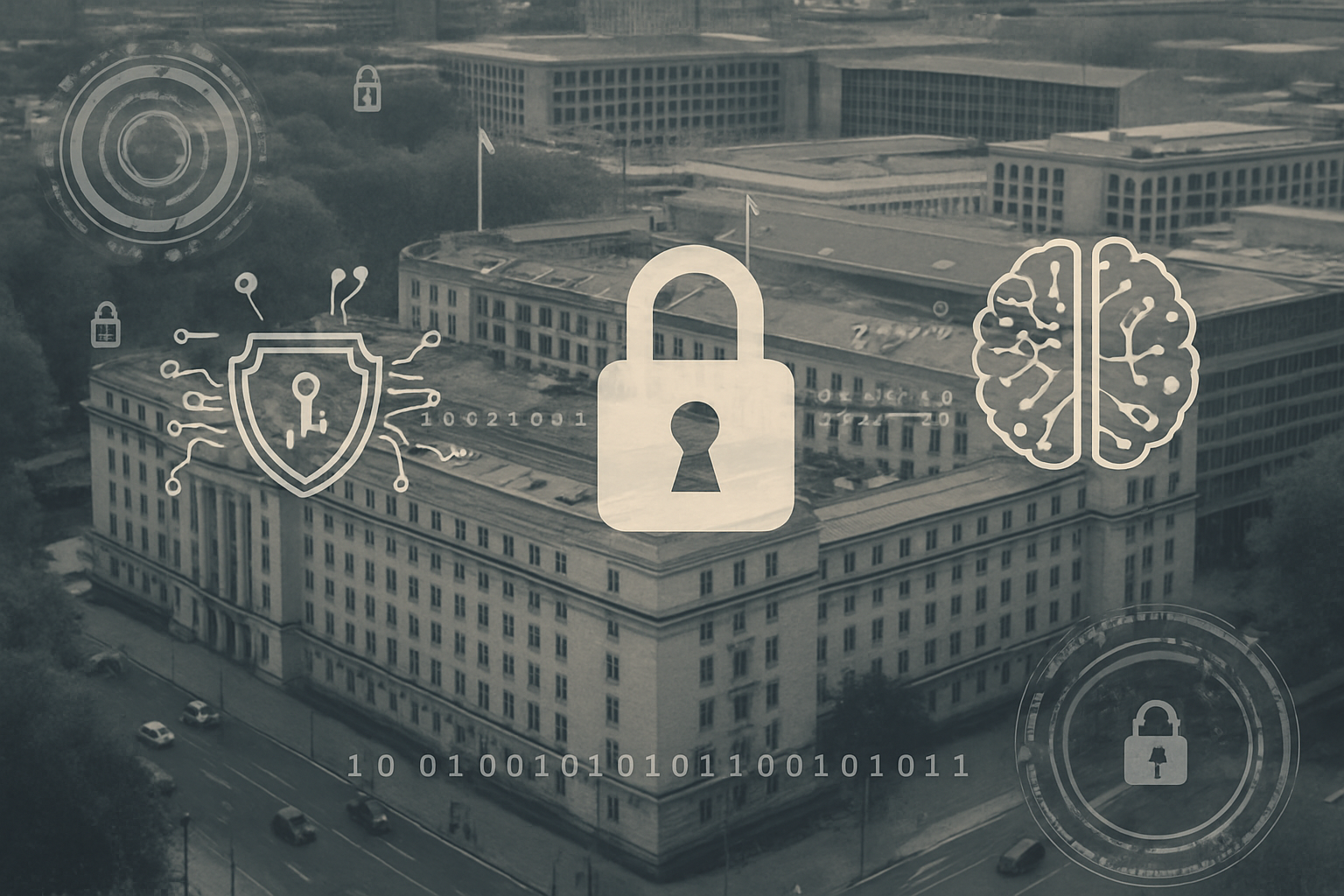Microsoft Lands $6B Federal AI Contract with $3B First-Year Savings Promise
QUICK TAKE
- Microsoft secures landmark federal AI contract worth over $6 billion across three years
- US agencies save $3 billion in first year through free Microsoft 365 Copilot at no cost access
- Deal positions federal government as global leader in AI adoption with 400+ security standards
- 36-month partnership includes $20 million implementation support for millions of users
- Agreement advances Trump Administration’s AI Action Plan with comprehensive workflow automation
Microsoft and the US General Services Administration have struck a game-changing partnership that delivers massive cost savings while putting federal agencies at the cutting edge of artificial intelligence.
Microsoft just landed one of the biggest government tech contracts ever, teaming up with the US General Services Administration to give millions of federal workers free access to Microsoft 365 Copilot for up to 12 months. The sweeping deal, worth over $6 billion across three years, promises $3 billion in first-year savings while completely transforming how federal agencies work.
This deal marks a major shift in how the government buys technology, using the combined buying power of the entire US government to slash costs like never before. Federal agencies can tap into advanced AI tools already built into their Microsoft products through September 2026.
Strategic AI integration accelerates government innovation
The partnership directly supports America’s AI Action Plan by putting federal agencies on the innovation front lines. Microsoft’s exclusive government suite lets agencies automate workflows, crunch data faster, and boost collaboration across departments. Public servants can now focus on their core missions while AI takes care of routine paperwork.
AI agents stand out as a revolutionary part of the agreement. With no per-agent fees, agencies can build smart solutions for citizen questions, case management, and contact centers. This capability extends government service reach and speed without adding extra work.
GSA Deputy Administrator Stephen Ehikian said, “GSA is proud to partner with technology companies, like Microsoft, to advance AI adoption across the federal government, a key priority of the Trump Administration. We urge federal partners to leverage these agreements, providing workers with transformative AI tools that streamline operations, cut costs, and enhance results.”
Cloud modernization breaks down agency silos
Major Azure discounts and eliminated data transfer fees tackle a huge barrier that has historically slowed collaboration between agencies. Agencies can now upgrade their infrastructure while unlocking advanced analytics and AI capabilities across departments.
Dynamics 365 applications will streamline government operations by improving citizen services, optimizing supply chains, and boosting field responsiveness. These upgrades directly impact public outcomes and service quality.
FAS Commissioner Josh Gruenbaum emphasized the transformational nature of the OneGov strategy: “This represents a paradigm shift in federal procurement leading to immense cost savings, achieved by leveraging purchasing power of the entire federal government.”
Security framework addresses critical concerns
Security stays front and center in this AI rollout. Microsoft’s core services have already earned FedRAMP High authorization, meeting over 400 critical security controls established in NIST 800-53 standards. Microsoft 365 Copilot received provisional Department of Defense authorization, with full FedRAMP High certification expected soon.
Integrated platforms including Microsoft Entra ID and Sentinel provide advanced identity and threat protection. This comprehensive security approach supports the government’s Zero Trust journey across federal environments while maintaining strict compliance standards.
The security infrastructure ensures agencies can quickly adopt AI solutions without compromising sensitive data handling or operational security protocols.
Implementation support maximizes value delivery
Beyond providing technology, Microsoft commits $20 million in additional support services to maximize implementation value. Free cost-optimization workshops will help agencies identify opportunities to reduce software duplication, automate services, and improve cross-team collaboration.
These workshops focus on practical implementation strategies that deliver immediate operational benefits. The investment reflects Microsoft’s belief that technology’s greatest value lies in empowering people to achieve mission-critical objectives.
Agencies receive comprehensive training and support throughout the 36-month discounted pricing period, ensuring sustained value delivery and operational excellence.
Global government AI leadership position
This partnership creates unprecedented efficiency gains while positioning US agencies as global leaders in government AI integration. The comprehensive agreement creates strategic advantages for public sector operations and sets international benchmarks for technology modernization.
Microsoft CEO Satya Nadella highlighted the company’s four-decade government partnership: “We will help federal agencies use AI and digital technologies to improve citizen services, strengthen security, and save taxpayers more than $3 billion in the first year alone.”
The total estimated value exceeds $6 billion over three years, demonstrating the substantial return on investment for American taxpayers. This figure encompasses direct cost savings, operational efficiency improvements, and enhanced service delivery capabilities.
Market impact extends beyond government sector
This deal signals broader market confidence in enterprise AI adoption and Microsoft’s competitive positioning against rivals like Amazon Web Services and Google Cloud Platform. The federal government’s AI endorsement provides validation for Microsoft’s enterprise AI strategy and could influence private sector adoption decisions.
Competitors must now respond to Microsoft’s aggressive government sector positioning, potentially accelerating overall enterprise AI market development. The deal demonstrates how large-scale AI deployments can achieve significant cost reductions while delivering operational improvements.
Federal agencies can opt into any or all offerings through September 2026, providing flexibility for gradual implementation and change management. This approach ensures successful adoption while maintaining operational continuity across government departments.
The agreement represents Microsoft’s largest government AI deployment, establishing precedents for future public-private partnerships in artificial intelligence integration. Success metrics will likely influence similar deals across international government markets.






